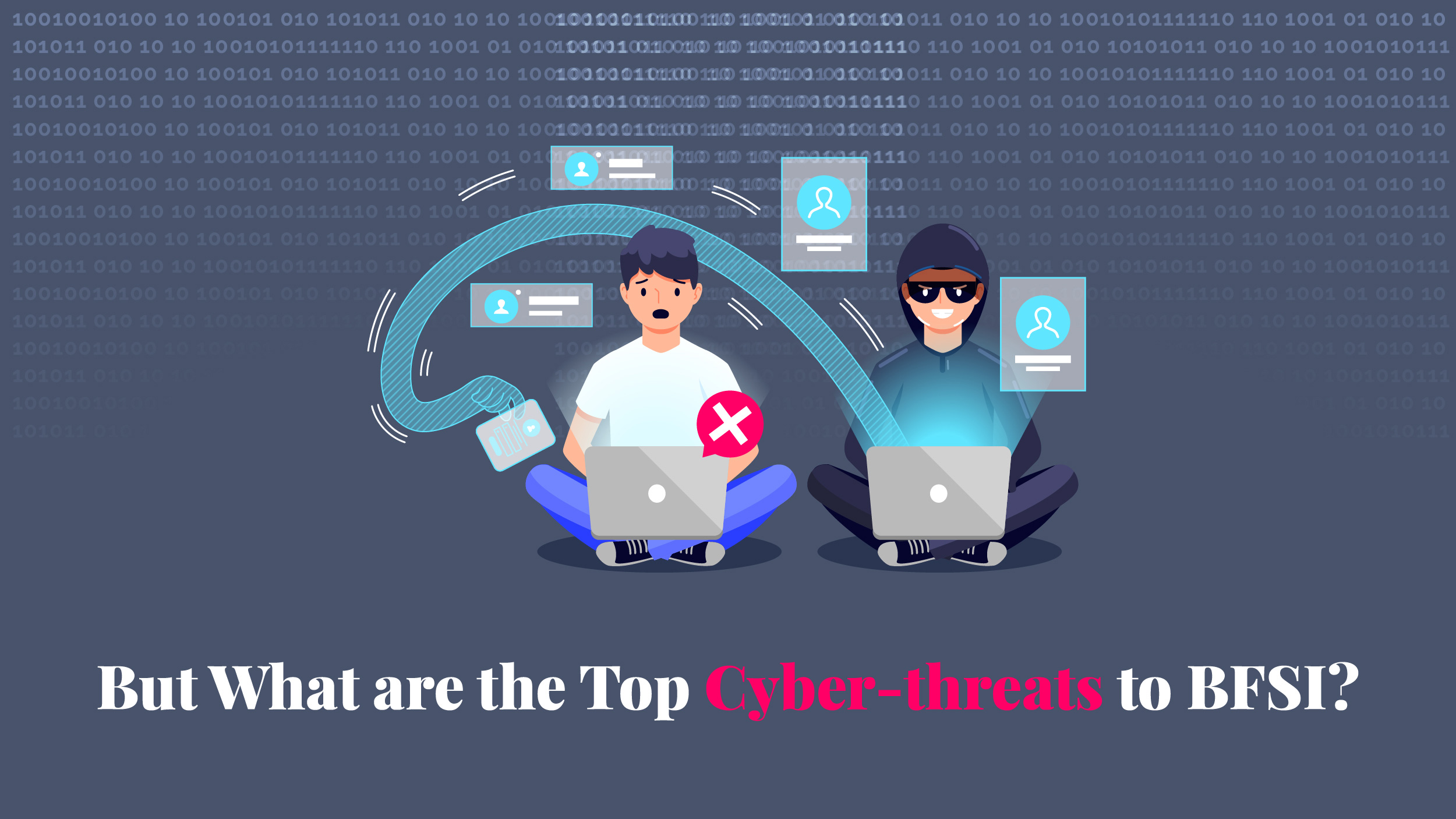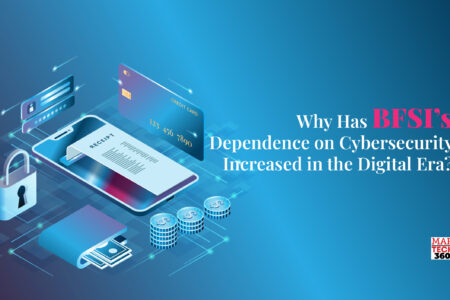The BFSI sector, which includes banking, financial services, and insurance, depends on security measures to uphold client confidence and safeguard their private information. Due to the everyday handling of sensitive data, personal information, and financial transactions in BFSI activities, there is a dependence on security. Without adequate security measures, BFSI organizations run the danger of losing their customer’s trust, sensitive data, and brand, which might have serious financial and legal repercussions. Consequently, security is essential to the BFSI sector, and companies that operate there must be vigilant about safeguarding their data and preventing unauthorized access.
The Need for Cybersecurity in BFSI
According to Trend Micro Incorporated, a cybersecurity pioneer, the banking sector saw a shocking 1,318 percent spike in ransomware assaults in the first half of 2021. Today’s cybersecurity risks assume several forms, including data breaches, fiscal breaches, malware, ransomware, and much more.
As a result, there is an urgent need to keep cybersecurity architecture up to date with cutting-edge security protocols, which are currently the norm. It’s self-evident that we’ll need all the cyber ammunition we can get to cope with these threats on a global scale, and that we’ll need a cyberthreat-centric approach in this industry.
How Badly is BFSI Affected?
Trellix reported a breach in December 2021 and was handling the investigation. Their investigation revealed that two government entities were found to have been hacked as a result of a vulnerability in a product they utilized called SolarWinds, according to their report. As a result of the tool’s widespread distribution, numerous systems have already been compromised.
Such breaches make us understand the importance of cybersecurity policies and their absolute necessity in the financial services business.
HCL polled over 3600 cybersecurity professionals around the world for its 2021 State of Cybersecurity Report in order to better understand security best practices and threat intelligence.
Some of their key takeaways were:
- In the event of cyber threats, 78 percent of respondents said that their primary concern was the organization’s reputation.
- Almost 65% of those polled admitted that their company evaluates its cybersecurity competence.
But What are the Top Cyber-threats to BFSI?

Social Engineering
This issue includes everything from customer-targeted phishing to employee-targeted phishing to a variety of other forms of social engineering in which users’ sensitive information is stolen. 81% of the bankers polled believe this is the most serious threat.
Ransomware
Ransomware, on the other hand, involves social engineering to attack, but it is financially exhaustive for the affected company. To carry out a successful breach, cyber criminals frequently use Advanced Persistent Threat tools and strategies.
Miscellaneous
VPN attacks, AI technology, Cloud-based attacks, and other risks are all just lurking in the future. In the current situation, developing technologies are a double-edged sword for BFSI.
Cybersecurity Mitigation in BFSI
Some measures to prevent cyber-attacks are listed below:
- The Cybersecurity Architecture Stack serves as a roadmap for any company. It successfully aligns existing needs through assessment.
- To avoid financial losses, the incident response plan should incorporate ransomware threats.
- To prevent attacks, companies should have a cyberthreat-centric approach with rigorous employee training and awareness initiatives.
- It should be a top priority to ensure multi-factor authentication and end-point security. This reduces the likelihood of user ID fraud and provides security in the event of asset theft.
- In order to apply best practices for ensuring corporate cybersecurity, the Chief Information Security Officer must be on the Board.
The onus of providing water-tight security measures falls primarily on the provider in BFSI. Thus, it is integral for the industry to be on top of its game when we talk about Cyber security.
How the Middle East’s BFSI Sector is Being Shaped by the Latest Digital Transformation Trends?
Cyrus Daruwala, managing director of IDC Financial Insights Asia/Pacific, delivered the event’s opening keynote, “Simplification in an Age of Complexity,” which had as its theme “The Adoption and Utilization of All Things Digital.” He explained how digital transformation and the adoption of a new organizational mindset will be crucial in enabling financial institutions to meet the challenges of tomorrow.
A presentation by noted ethical hacker Glenn Wilkinson titled “Hacking a Billion Dollar Bank” was a standout moment at the IDC Financial Services Congress 2023. He guided the audience through the life of an underground hacker who hacks a sizable bank by drawing on his own insights on cybersecurity. He demonstrated in real time how hackers analyze businesses to find their weak points before breaking in to take confidential data.
Additionally, the event included a number of fascinating panel discussions on subjects including “Creating Hyper-Personalized Digital Banking Experiences,” “BFSIs Tapping into FinTech Innovation: A Win-Win Situation,” and “How Artificial Intelligence is Reshaping Critical BFSI Operations.”
What is the Future of BFSI With Cybersecurity?
A number of current and forthcoming cybersecurity trends are pertinent to the BFSI sector. These include the introduction of cloud-powered customer experiences, a greater reliance on advanced blockchain systems, an increase in demand for self-service contactless banking, addressing security risks in digital banking platforms, identifying and preventing risks in third-party service providers, and awareness of cybersecurity threats related to cashless transactions. Additionally, the importance of mobile cybersecurity for BFSI organizations is growing as a result of the rapidly changing and developing mobile ecosystem. These trends highlight how crucial it is for the BFSI sector to implement strong and preventative cybersecurity measures in order to preserve confidence and safeguard sensitive data.
Conclusively
Effective cybersecurity measures are crucial to the BFSI sector’s ability to protect sensitive information and keep customers’ trust. The sector is embracing technology innovations, from AI-driven fraud detection to blockchain-based security solutions, to reduce risk and keep up with changing cybersecurity threats. Additionally, BFSI companies must be on the lookout for cybersecurity risks related to developing technologies given the growing desire for mobile and digital banking. Businesses in the BFSI sector may maintain their success and forge solid relationships with their clients in an increasingly digital environment by placing a high priority on effective cybersecurity measures and proactive risk management techniques.
